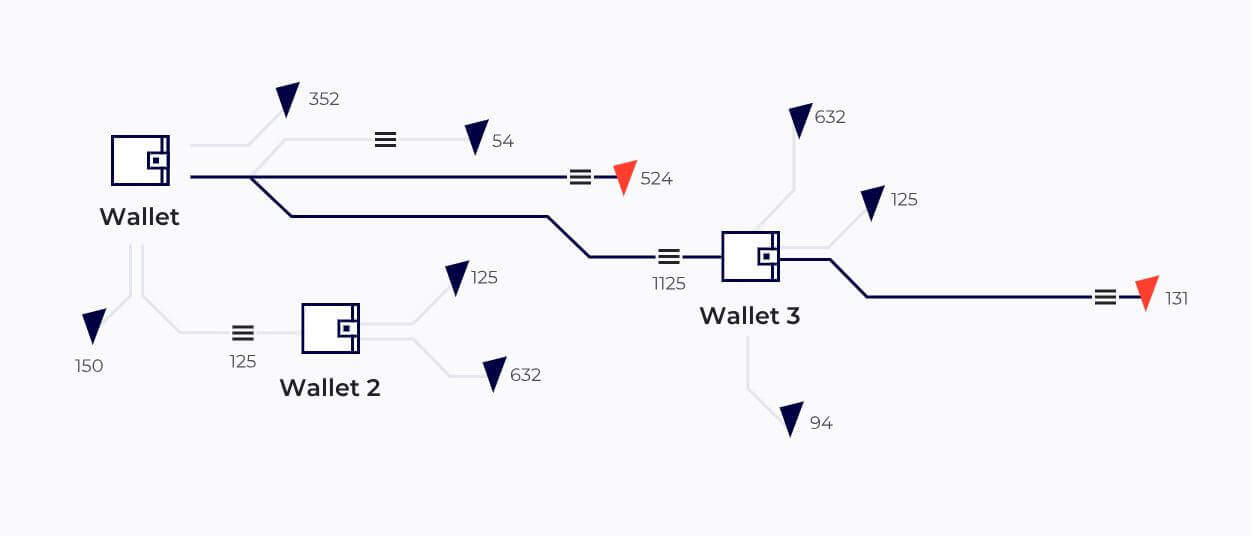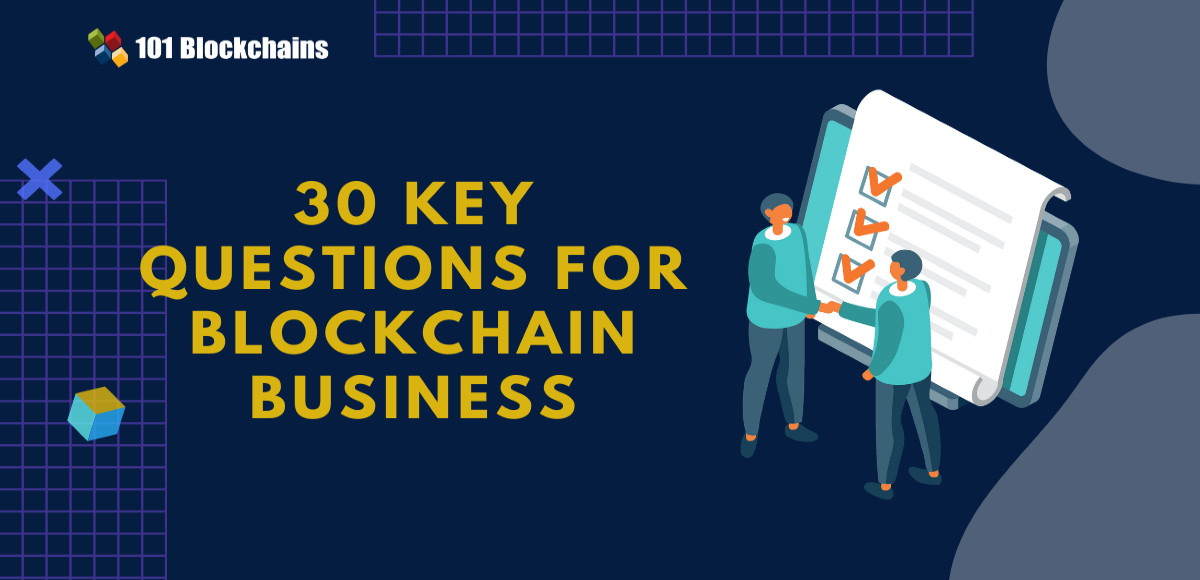Learn how blockchain truly works, master key definitions, and uncover what makes smart contracts so "smart." Dive into the fundamentals, gain valuable insights, and start your blockchain journey today!

- Opinions
101 Blockchains
- on September 20, 2018
Blockchain Analytics – The Blockchain KYC Challenge
Blockchain has revolutionized several industries and driven them to a decentralized world for promising immutability, transparency, and speed in carrying out all kinds of transactions. While there are undeniable advantages of using this technology, there are some drawbacks as well. Few of the most interesting challenges are the KYC and also AML as they both require an advanced Blockchain Analytics solutions.
Build your identity as a certified blockchain expert with 101 Blockchains’ Blockchain Certifications designed to provide enhanced career prospects.
Why is data so important?
Data is considered to be the oil of the digital world with millions of organizations running their businesses around gathering and optimizing it for suitable purposes. Even common mobile users can feel the ‘pressure’ by companies asking them to give access to personal data after installing an app or using features from other online platforms. To underscore the importance of information, we should consider the case of Yahoo when its data was earlier compromised, resulting in significant loss to the net worth of this giant technology organization.
Blockchain promises to provide ultimate security to user’s data to an extent where users are kept anonymous and can’t be identified. This turns out to be a negative point with a contrary point of view in some scenarios. The problem with anonymity is that money launderers are using cryptocurrencies for transferring their ill-gotten money to other countries.
Importance of Blockchain Analytics
Blockchain Analytics is all about knowing the data stored on these digital ledgers. In an environment of financial transparency, it is difficult to get away with an ecosystem which conceals all type of data and information used in the blockchain. Digital currencies are in the limelight of media and business sector, regulatory authorities and governments are taking these developments seriously. They are making laws which ensure that no money laundering activities should take place using cryptocurrencies. For that reason, many countries have banned digital currencies altogether while few have put partial restrictions on their trade. It is keenly analyzing the data so that the ecosystem knows what the data is and how and where it has been used by a specific user on the network.
For making Blockchain Analytics to the mainstream, it was necessary for the developers to come up with some measures like Know Your Customer (KYC) and Anti Money Laundering laws. There is a wide consensus on utilizing KYC and AML measures for making the technology acceptable for the countries where money laundering laws are stricter.
As the domain of this technology will expand to more industries, the importance of Blockchain Analytics will also be increased. Data scrutiny will become more important for carrying transactions such as money transfers and validating the transactions, to name a few.

Image Source: Crystal
Blockchain technology and increased regulatory pressures
Regulatory authorities have become vigilant and active to keep an eye on the digital currencies and put pressure to address AML and KYC issues around the world. The purpose of stressing on the need for these important measures is to address the frauds happening in the crypto sphere and to create a capacity for detecting fraudulent activities with the help of Blockchain Analytics. It would also help to identify suspicious activities happening in the ecosystem. To cater to these serious problems, it helps us address a major chunk here.
China was the first to ban crypto trading for the same reason and this created a lot of fuss among crypto enthusiasts, organizations and regulatory authorities. Chinese traders had to move to other countries where crypto trading was illegal. Following the pattern, Indian apex court had also passed an order warning local crypto traders to stop doing transactions with banks. However, this ban was challenged after getting millions of digital signatures on an application which was then presented to the court and as of yet, the matter is sub judice in the court. In the same week, Pakistan’s premier bank also banned crypto trading and security agencies also arrested few people for doing this business. The room for ICOs was narrowing down with regulatory authorities of several countries showed reservations for the inherent anonymity feature which paved way for illegal activities.
The dark web also became active and they started promoting child sex, women trafficking, money laundering, and other illegal activities under the curtain. All of these reasons put high pressure on regulatory bodies of several countries to devise laws for prevention of the use of cryptocurrency in criminal activities. While it was not possible for them to keep a watch at these wrongdoings since there were no such technologies which could reveal the identity of these people operating under the carpet, the pressure on these authorities kept mounting.
As a result of this, The Monetary Authority of Singapore has laid down a procedure and guidelines that the ICOs must follow. This development allows them to accept digital currencies as a product and brought them under a regulatory law which bounds the companies to keep KYC checks and report any criminal and suspicious activity. Following the patter, Hongkong Securities and Futures Commission also released documents warning people about the risks associated with ICOs and stressing on the need of KYC requirements. Malaysia has also followed the pattern and created AML policy for the use of cryptocurrencies.
To cut the debate short, regulatory authorities are actively devising laws to prevent the use of digital currencies in criminal activities, security breaches, and scams.
In a bid to improve the KYC and AML checks, blockchain analytics have become a necessity for data monitoring on the network.
Monitoring the data on blockchain serves a purpose of checking for the quality and utility of the information. To make it more clear, the data is analyzed if it is the right fit for the purpose and the quality of the information is checked.
Want to become a Cryptocurrency expert? Enroll Now in Cryptocurrency Fundamentals Course
Blockchain Analytics for improving data management
Improving the management quality in the public sector is the main target of Blockchain Analytics for maintaining trusted information about assets, activities, individuals, and organizations. The data pertaining to personal information such as date of birth and death, marital status and other important information regarding organizations such as property transfers, business licensing and their line of business are all important to be securely managed and shared as per the right to information laws. Managing such data without using blockchain technology is a complicated task but there should be measures in case of making amendments to the data. An individual should come and appear in person in case of changing or updating his personal record to ensure the quality of information and its transparency.
Similarly, using blockchain technology for onward sharing of the data should also be made automated by using smart contract technology. For instance, if a third party needs the information, it should be automatically shared on meeting the predefined conditions. This improves data transparency and management to the satisfaction of all stakeholders.
It is a key measure and an undeniable feature for improving the transparency of this very technology. There are worries that criminals might access the database of a public ledger and use them in different wrong activities. If all the measures on the data stored on the blockchain are taken, this gives everyone a peace of mind regarding the security of their information. Blockchain technology has been used for several purposes but the most important one is handling and managing information.
Data Security on the blockchain
Value of data has been increased and we can countercheck this fact by observing the number of instances in which hackers have compromised databases for personal details, fingerprints, financial information, social security numbers, and employment history.
When comparing data security with conventional system and blockchain, it is well known that conventional data security is ensured by encryption methods which do not promise ultimate security, on the other hand, blockchain does not allow hackers to steal or manipulate information saved on the ledger.
Blockchain Analytics and Data analysis
Blockchain has the sheer capacity to change the world in the data sector. It has been witnessed that in the recent years, technology has been utilized to transform several industries and business models but its need to transform data analysis is inevitable. The people who are new to blockchain world find it difficult to understand how this technology can affect data analysis and there are so many challenges when it comes to it. Money is probably the most difficult barrier because of its underlying analytical infrastructure.
However, this hurdle can be removed after business intelligence services will provide an easy to use subscription tools for analyzing data. In the next phase, people are expecting a new mechanism from blockchain technology for devising tools that will help to monitor and analyze data. Blockchain offered a more democratic way to offer this utility by allowing the big organizations to make their analytics and allowing the smaller companies to use these tools. Everyone can use these features in an economical way.
Exchange of Data
As discussed above, data is rightly called the oil of the modern economy and there are millions of organizations who are working on your data, collecting it and selling it to the highest bidders. Blockchain ensures that data sharing is more feasible and efficient by eliminating redundancy and inaccuracy of data. This gives buyers a benefit where they only purchase the information which is relevant and of absolute use to their cause.
Blockchain makes it easier for everyone for sharing the data which is accurate, valid and relevant. The technology is a better alternative for retrieving and gathering the information with compare to conventional practices, which require scanning multiple files and removing redundant stuff before finally sharing the useful data.
The old data sharing mechanism is costly and inefficient while the blockchain technology offers a transparent and economical solution for this purpose. It is useless to say that companies getting the data, which they exactly require, improves their business by generating more leads and enhancing the overall performance of their organization as well.
Explorer tools for Blockchain Analytics
Let us have a look at some of the most reputed blockchain analytics explorer tools on the internet.
1. Crystal
It is developed by Bitfury’s team and the solution it offers is quite comprehensive. Crystal does not only allow the users to view a particular ecosystem in multiple dimensions, but it is also perfectly suitable for establishing links between different criminals in order to aid in tracking and surveying.
So it is a good tool for blockchain analytics in terms of KYC as investigators and other agencies can use it to enhance the security of their systems and overall network as well.
2. OXT
This tool is, particularly for bitcoin ledger. Which means that all of the transactions occurring on its blockchain can be analyzed with the help of OXT. One of the greatest perks is that it allows the users to select various search metrics, so you are always at the liberty to personalize your analysis results.
It should be noted that since these ledgers are public by default, there are some concerns raised by a community of users and tools like OXT allow them to enhance the determination of privacy.
If a certain metric is not available on the system, OXT entertains all personalized requests from the users.
Start learning Blockchain with World’s first Blockchain Career Paths with quality resources tailored by industry experts Now!
Final Verdict
It is again, needless to say, that the value of data has increased over the years and companies base their business plans and marketing strategies on data and information. To make it simpler, even a small e-commerce website asks for user’s information and then utilizes this data for devising the marketing strategy for placing relevant advertisements. Blockchain analytics has a key role in major business activities. Data has been monetized where consumers are more informed about the value of their information. But the problem with giving away the data for consumers is that they can’t keep a check on the wrong use of their information.
However, blockchain technology ensures transparency and allows the users to keep a watch on the information to ensure that it is not used in irrelevant and criminal activities. This promotes trust where data can only be shared once you give consent for it.
*Disclaimer: The article should not be taken as, and is not intended to provide any investment advice. Claims made in this article do not constitute investment advice and should not be taken as such. 101 Blockchains shall not be responsible for any loss sustained by any person who relies on this article. Do your own research!





![Future of Blockchain: Predictions for 2022 [UPDATED] future of blockchain predictions](https://101blockchains.com/wp-content/uploads/2020/12/future-of-blockchain-predictions.png)

